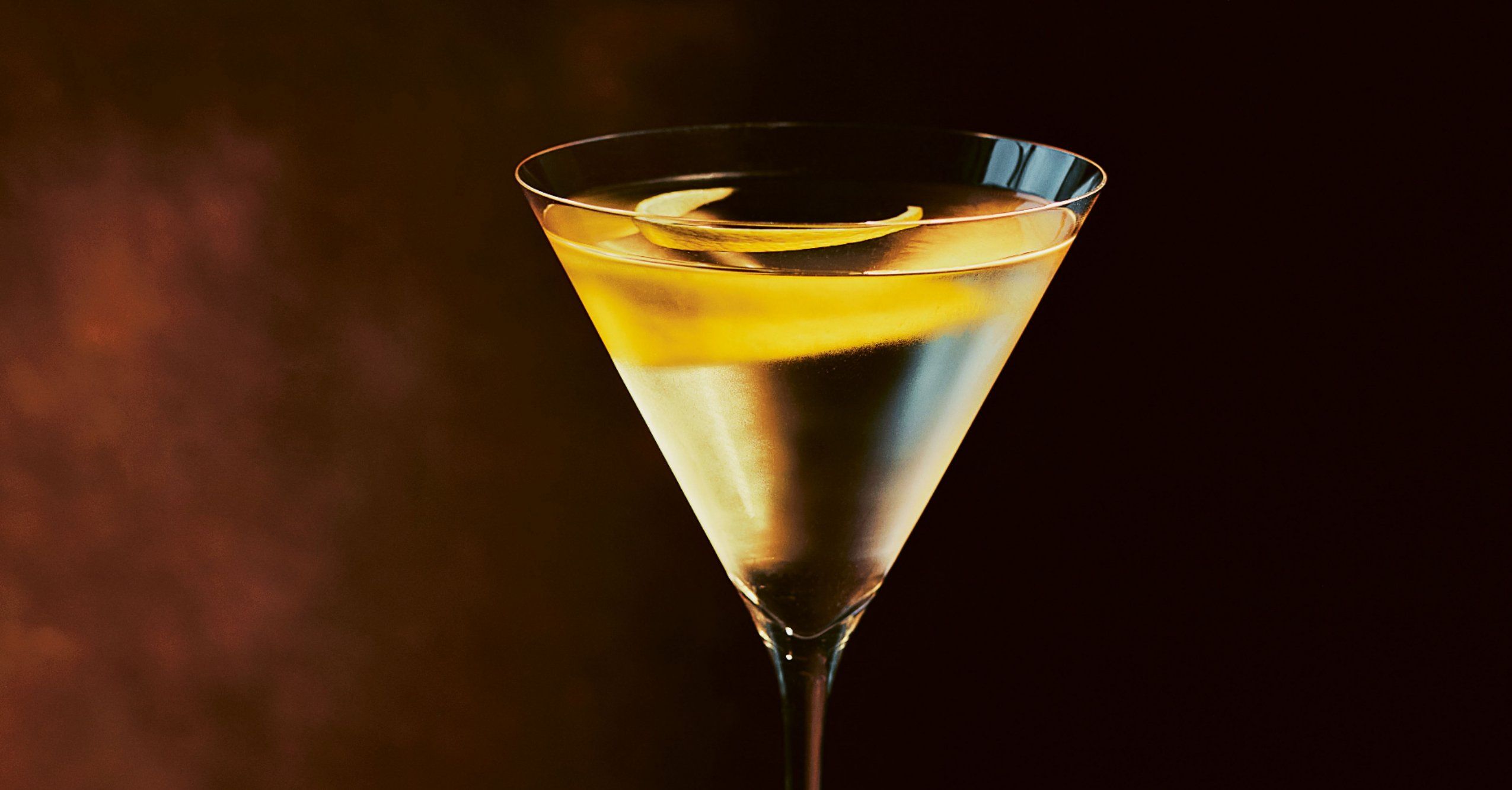There is something particularly delightful about hearing the words: “Shall we have a Martini?” As soon as they’re uttered, the ante is upped. There is a little charge of excitement. You and the asker are now in cahoots – and that’s before you’ve even taken a sip…The first Martini I ever had was a Vesper at The Dorchester hotel in London.
I was in my early twenties and had just landed a job as a reporter on a drinks magazine, despite the fact that I knew absolutely nothing about drinks. As luck would have it, I ran into Robbie Bargh, a rather fabulous hospitality consultant who spent his days designing cocktail bars for some of the world’s top hotels. Bargh was appalled by my mixological ignorance, so he whisked me off to the Dorchester (at some wholly inappropriate time like 3 p.m. on a Monday afternoon, I recall), sat me down on a plush banquette and ordered me a Vesper.
I can still see that icy chalice now, sitting on its embossed coaster: the star-bright liquid, marbled with lemon oils, rising silkily to the rim; the Y-shaped glass, once frosted, gradually beading with condensation. Robbie told me the recipe had been invented by James Bond author Ian Fleming. I took a sip, and then sat there, rapt, as its cold fire hit my solar plexus.
In the two decades since, my hunt for a good Martini has taken me all over the world: from the high-rise bars of Tokyo, to some of Brooklyn’s crummiest dives; from the rain-lashed moors of Northumbria, to St James’s fanciest hotels. I’ve had Martinis in Delhi, Barcelona, Paris and Milan; and one very memorable Lychee Martini in a speakeasy hidden out the back of a Panamanian hair salon.
Surrounded by the world’s best mixologists, I’ve sipped in memoriam Martinis by the grave of Savoy bartender Harry Craddock. We travelled there in a cavalcade of vintage cars and drank our toast from iced Thermoses. I’ve clocked up thousands of miles in the name of vermouth and gin. And the reason I’ve done this is because the Martini is so much more than just a drink.
It’s a platonic ideal, a totem – a sort of boozy cultural prism. A drink bound by recondite rules, and steeped in lore and superstition. Its minutiae have had some of the world’s greatest minds dancing on a pin – Ernest Hemingway, J. Robert Oppenheimer, Ian Fleming, Winston Churchill, Dorothy Parker, Homer Simpson.
It’s the sum-total of all that’s exquisite, yet it’s also a kind of perfection that’s well within one’s grasp. You’re just as likely to discover your dream Martini at your kitchen table as you are in a world-class bar. Because the way you take your Martini is as particular as the way you take your tea. Is there any other cocktail that requires the bartender to first ask you how you like it?
If you never mixed a Martini yourself you’d only know the half of it. Because all the little rituals involved in its preparationare a big part of its magic: choosing the gin, cracking the ice, cutting the scented twist. It’s an antidote to a world of infernal distractions; a chance to be fully present. The one thing nicer than mixing yourself a Martini is mixing one for somebody else.
Getting it just how they like it – even if you don’t really approve – is the ultimate act of kindness.
THE VESPER MARTINI
Ingredients:
1 ½ oz gin
½ oz vodka
and either
¼ oz Lillet Blanc
3 drops Angostura Bitters
OR
¼ oz Cocchi Americano
Glass: cocktail glass
Garnish: lemon twist
Instructions: Fill a shaker two-thirds with ice. Add the ingredients. Shake briskly for ten seconds. Fit a Hawthorn strainer over the mouth of the shaker and pour into cocktail glass. Garnish with lemon twist.
The Vesper Martini was first described by James Bond in Ian Fleming’s novel Casino Royale (1953). He instructs the casino bartender as follows: “In a deep champagne goblet […] Three measures of Gordon’s, one of vodka, half a measure of Kina Lillet. Shake it very well until it’s ice-cold, then add a large thin slice of lemon-peel. Got it?”
The Vesper has a macho reputation, but it is actually slightly sweet. The fact it’s shaken rather than stirred also helps to soften it a bit. The French aperitif Kina Lillet was discontinued in 1986—but you can approximate it pretty well with Lillet Blanc and a drop of Angostura Bitters (or use Cocchi Americano, a golden aperitif rom Italy, which is bittered with gentian and quinine).
Bond would have probably poo-pooed modern-day Gordon’s, which is bottled at a rather wimpy 37.5% ABV (in the UK at least). I reckon he’d go for something with a bit more torque to it, like classic Tanqueray.
Excerpted with permission from The Martini: The Ultimate Guide to a Cocktail Icon by Alice Lascelles (Quadrille). It’s available on Amazon here.

